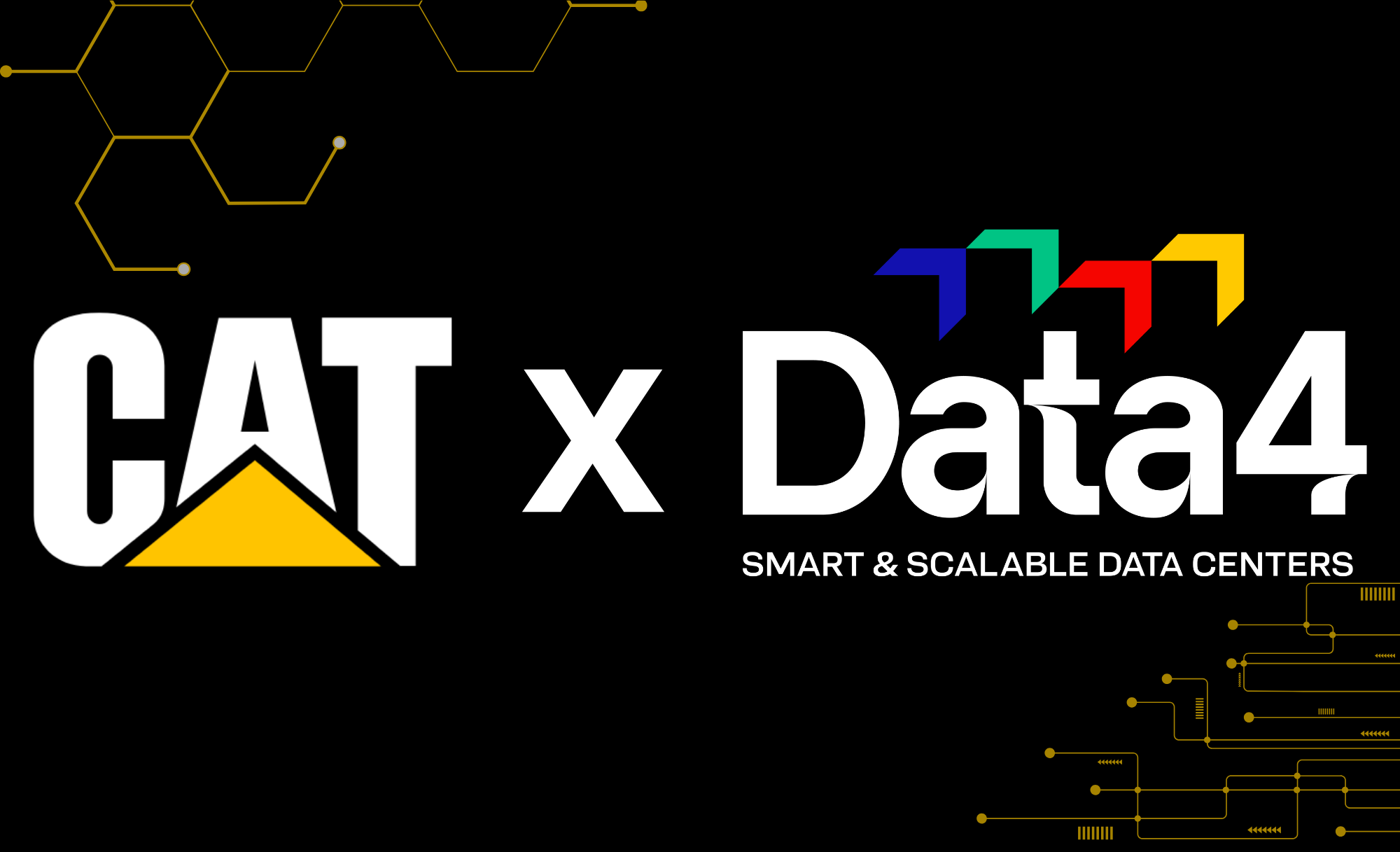
As artificial intelligence accelerates the transformation of the global technology landscape, securing and strengthening the resilience of our supply chain has become a cornerstone of digital sovereignty. In this context, Data4 and Caterpillar — trusted partners for over fifteen years — have entered a new strategic phase with the signing of a pan-European framework agreement designed to meet the demands of a data-driven future.
This milestone was formalized on July 10th during the visit of Melissa Busen, Vice President of the Electric Power Division at Caterpillar, to Data4’s Marcoussis campus. More than a renewal of collaboration, this agreement embodies our procurement vision for the AI era: integrated, agile, industrialized, and sustainable — built to support the scale and complexity of Europe’s evolving digital infrastructure.
Generator sets: A critical pillar of energy resilience
In the architecture of a data center, generator sets are not just auxiliary systems — they are mission-critical assets. They ensure uninterrupted power supply under all circumstances and are central to operational continuity in the face of grid instability or surging AI workloads.
Recent large-scale outages, such as the blackout in Spain, have once again underlined the strategic importance of these systems. Their complexity, long lead times, and industrial weight make them a vital, high-stakes component of any infrastructure strategy — one that demands anticipation, control, and strategic alignment.
By reinforcing our alliance with Caterpillar, we are strengthening our ability to secure critical assets, standardize processes across our six European markets, and maintain predictability in an increasingly volatile environment.
An industrial model engineered for AI-driven growth
In a world of persistent logistical pressure and rising energy demands, this agreement allows Data4 to gain greater visibility into future needs, integrate forecast-based sourcing, and accelerate innovation in backup power solutions.
From modular design to low-carbon technologies, we are building a procurement model that enables scale without compromising reliability. This is essential to supporting the exponential growth of AI applications — and to maintaining the energy resilience required by our most advanced digital infrastructures.
Responsible procurement as a driver of long-term performance
This alliance is deeply rooted in Data4’s Responsible Procurement Policy, fully embedded in all strategic decisions since 2024. Every supplier agreement is governed by stringent ESG criteria, covering energy efficiency, material traceability, human rights, and diversity and inclusion within the supply chain.
For critical equipment such as generator sets, Product Environmental Profiles (PEPs) are required. All tenders are assessed using environmental, social, and ethical benchmarks, reinforced by on-site audits and performance monitoring to ensure compliance beyond contractual obligations.
A shared drive for sustainable innovation
With Caterpillar, these standards are not just enforced — they are transformed into engines of innovation. Joint projects are already underway, including the use of alternative fuels like HVO (Hydrotreated Vegetable Oil) to reduce carbon emissions, as well as intelligent monitoring systems to improve energy optimization and operational efficiency.
These initiatives are directly aligned with Data4’s broader sustainability roadmap, which seeks to reconcile performance, resilience, and environmental responsibility at every level of the value chain.
Building the digital infrastructure of tomorrow: sovereign, scalable, and sustainable
Through this enhanced partnership, Data4 reaffirms its ambition to build a next-generation digital infrastructure for Europe — one that can absorb the demands of AI, support energy transition goals, and reinforce Europe’s technological sovereignty.
In an age where energy stability is synonymous with competitiveness, Caterpillar is far more than a supplier. It is a long-term strategic ally with whom we share a bold vision: to design and operate data centers that are smarter, faster, and greener — built for the future.

